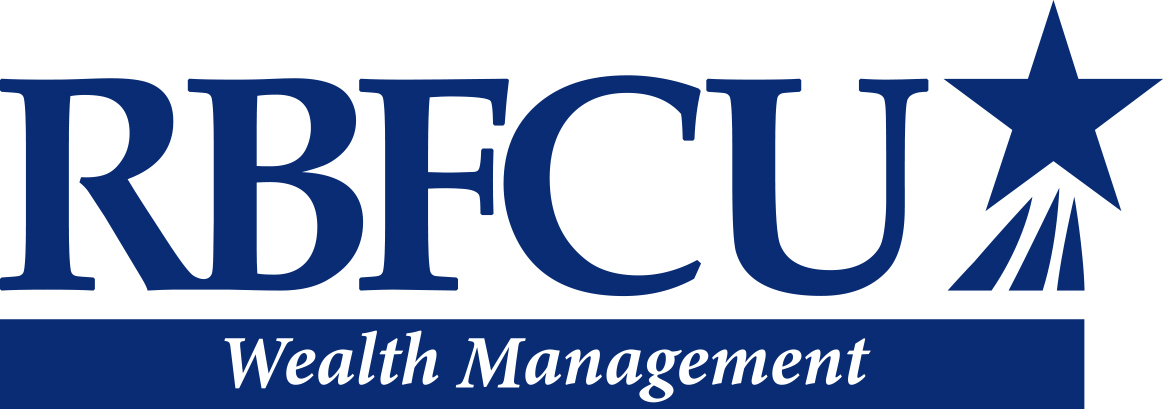7 Wealth Management Trends to Watch
What will the future bring in terms of economic growth and stability, intergenerational dynamics, technological innovation and regulatory changes? No one can say for certain, but here are a few wealth management trends worth watching.
.jpg?sfvrsn=ad98b2a8_4)
Although some of these trends may come and go over the next year, remember that RBFCU Wealth Management is always here to help affluent households and investors tackle their wealth management challenges and opportunities with more confidence.
1. The Great Wealth Transfer
A phrase symbolizing the transfer of assets from Baby Boomers to younger family members, The Great Wealth Transfer is a popular media topic.
That’s because, over the last decades of the previous century, Baby Boomers did remarkably well for themselves, enjoying the fruits of a strong economy from the time they entered the workforce until retirement. Over time, that foundation of financial stability enabled an entire generation to accumulate massive wealth.
As a result, today’s Gen X, Millennial and Gen Z family members — the children, grandchildren and great-grandchildren of Baby Boomers — stand to inherit trillions of dollars from them over the next 18–20 years. This intergenerational shift in buying power could put many younger Americans in a better position to own a home or invest.
Despite the hype, there are some important realities to consider.
For instance, with U.S. adults living longer than ever before, eldercare and late-in-life health care costs can take a big bite out of accumulated assets. After all, according to the National Institute on Aging, many seniors “pay for part or all long-term care with their own money,”1 including savings, investments and proceeds from home sales.
» Insight: For forward-thinking individuals who recognize that legacy planning is an important part of a comprehensive wealth management approach, a conversation with a financial advisor about wealth transfer may be in order. Working together, you can craft a strategy that balances your personal care needs with specific goals you have for transferring assets to beneficiaries, including individuals and charities.
In line to receive an inheritance — or perhaps you are a recent beneficiary of a large estate or trust? Again, a financial advisor can assist you as you prepare for the future, including navigating any relevant tax implications due to a major windfall.
2. Retirement and longevity risk concerns
In an era when people are living longer than earlier generations, longevity risk — the possibility that an individual may outlive their assets — has become a real concern for individuals approaching retirement age. Rising health care costs are a significant concern, too, as older Americans are particularly vulnerable to the impact of escalating expenses.
There are strategies that can help mitigate longevity risk. One popular approach is to work with a wealth management team to explore advanced insurance products and cash flow strategies suited for more affluent households.
» Insight: Depending upon your assets and strategies, you might also be able to work toward a work-optional lifestyle well before reaching retirement age.
3. Responsible, sustainable investing
Investors are increasingly seeking out investments that not only yield favorable returns but also contribute to the greater good. In other words, they’re looking to align their investment strategy with their personal values.
For instance, funds that support sustainable environmental, social and governance (ESG) initiatives have been gaining popularity. Yet it isn’t always easy to obtain reliable, uniform data from companies regarding precisely how they fulfill their ESG claims.
» Insight: Besides reviewing company disclosures to ensure that your investment holdings align with your priorities, remain alert to the possibility of exaggerated environmental and sustainability practices, a tactic known as “greenwashing.”
4. Artificial intelligence (AI), banking and investment
As major financial institutions and investment firms increasingly lean into AI2 tools, regulators and lawmakers are racing to catch up. Within the last couple of years, both the U.S. Securities and Exchange Commission (SEC) and the Federal Trade Commission (FTC) have stepped up efforts to address AI safety, security and regulations. Moving forward, many experts anticipate greater governmental scrutiny as the new technology spreads throughout the financial services industry and broader culture.
Although AI can rapidly analyze data and identify patterns — which could prove useful for investors, the technology is still relatively new and may frequently generate inaccurate information. Still, many investors are intrigued by the possibilities of new technology.
» Insight: It may be wise to proceed with extreme caution when sharing personal details via AI with unfamiliar entities, especially since it’s increasingly being used to create difficult-to-detect frauds and scams.
5. Growing adoption of digital assets and blockchain technology
The Crypto Boom of 2017–2018 brought bold predictions that cryptocurrency would rapidly dominate financial markets. However, volatility and risk due to a lack of regulation fostered mistrust in the early 2020s among many investors.
Remarkably, in the wake of the SEC having more closely scrutinized crypto asset investments and alerted investors3 to potential pitfalls, digital assets have started to regain investor interest. Meanwhile, some traditional financial firms are exploring innovative ways to leverage blockchain technology to improve operational efficiency and create new opportunities.
» Insight: This is an evolving topic of interest for many investors, one for which a good relationship with an experienced wealth management team may be helpful.
6. Adaptability and balance as long-term strategies
Tracking the hottest stocks, funds and public offerings on your smartphone can feel exciting. Yet many seasoned investment professionals continue to recommend focusing thoughtfully on long-term, balanced4 investment portfolios and strategies. Why? Because a more mindful approach to asset and portfolio management may buffer your wealth against uncertainty or negative developments, such as economic volatility.
» Insight: Working closely with a wealth management team, you can develop and refine an investment strategy that potentially helps offset the impact of inflation and economic downturns. Regular financial reviews and conversations can also help you determine if you might want to rebalance your portfolio to match your risk tolerance and risk capacity, both of which can change over the course of your lifetime.
7. Real estate maintenance and resilience
Your home may be the single biggest investment of your lifetime — and your largest personal asset. Major hailstones, high winds, tornadoes, wildfires, floods and drought increasingly present challenges for property owners nationwide.
Meanwhile, as more buyers seek to purchase luxury properties that double as workspaces, multigenerational homes, or income-generating vacation rental properties — sometimes in more than one location — Mother Nature’s potential impact on one’s assets can grow.
Thus, resilience and sustainability are becoming watchwords in personal real estate ownership, with luxury buyers looking for energy efficient properties featuring comparatively low flood risks and drought resistant landscaping.
» Insight: Consider retrofitting your current home with upgrades that make it more resilient and offer rebates or tax breaks — and potentially increase its resale value. Your real estate agent, especially a local one who is familiar with your area’s realty market, can be a good resource for exploring strategies and identifying firms to assist you.
The takeaway
Rapidly evolving technologies, the transfer of assets between generations, new regulatory policies and other trends will continue to shape our society, culture and the financial landscape for the near future.
Fortunately, RBFCU Wealth Management is ready to help affluent individuals, families and business leaders navigate it all with more confidence.




